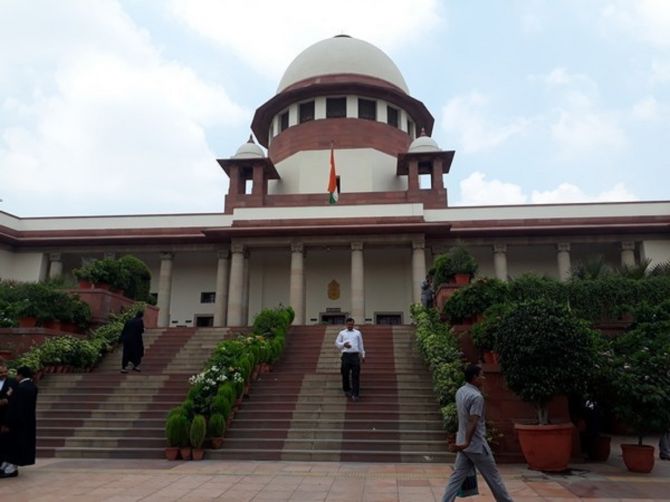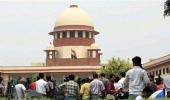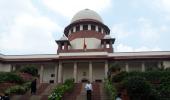The Supreme Court has set free a death row convict, acquitting him of the charge of setting afire his son and two brothers, who were allegedly against his second marriage, at his Bijnore home in 2014, saying the dying declarations of two victims were not in sync with the testimonies of key witnesses.

The top court also dealt in detail with the legal principle on dying declaration and its trustworthiness on the presumption that a person on death bead does not lie.
“Dying declaration while carrying a presumption of being true must be wholly reliable and inspire confidence. Where there is any suspicion over the veracity of the same or the evidence on record shows that the dying declaration is not true it will only be considered as a piece of evidence but cannot be the basis for conviction alone,” a bench comprising justices BR Gavai, JB Pardiwala and Prashant Kumar Mishra said in its 36-page judgement.
The top court also ordered immediate release of convict Irfan, who is in jail for the last eight years, after setting aside his conviction and the death penalty for his alleged role in the death of his son Islamuddin and two brothers Irshad and Naushad on the intervening night of August 5-6, 2014.
The three succumbed to their injuries at Delhi's Dr Ram Manohar Lohia Hospital on different dates.
The trial court had relied upon the dying declarations of Irshad and Islamuddin naming Irfan as the person who set them on fire.
The judgement and the sentence were upheld by the Allahabad high court on 2018, after finding no discrepancies in the statements.
While allowing Irfan's appeal, the top court referred to the legal position and judgements, both Indian and foreign, on trustworthiness of dying declarations in a case hinging on circumstantial evidence.
“The juristic theory regarding the acceptability of a dying declaration is that such declaration is made in extremity, when the party is at the point of death and when every hope of this world is gone, when every motive to falsehood is silenced, and the man is induced by the most powerful consideration to speak only the truth,” the bench said.
Notwithstanding this, great caution must be exercised in considering the weight to be given to such dying declarations, it said.
“Since the accused has no power of cross-examination, the courts insist that the dying declaration should be of such a nature as to inspire full confidence of the court in its truthfulness and correctness. The court, however, should always be on guard to see that the statement of the deceased was not as a result of either tutoring or prompting or a product of imagination,” it said.
Since time immemorial, despite a general consensus of presuming that the dying declaration is true, such statements are not accepted in strict sense, the apex court said.
“Rather the general course of action has been that judge decides whether the essentials of a dying declaration are met and if it can be admissible, once done, it is upon the duty of the court to see the extent to which the dying declaration is entitled to credit,” it said.
It said courts are first required to satisfy themselves that the dying declaration in question is reliable and truthful before placing any reliance upon it.
It is the duty of the prosecution to establish the charge against the accused beyond the reasonable doubt.
“The benefit of doubt must always go in favour of the accused. It is true that dying declaration is a substantive piece of evidence to be relied on provided it is proved that the same was voluntary and truthful and the victim was in a fit state of mind. It is just not enough for the court to say that the dying declaration is reliable as the accused is named in the dying declaration as the assailant,” it said.
In the present case, it is difficult to rest the conviction solely based on the two dying declarations, the top court said, adding the Allahabad high court disbelieved the testimony of a key prosecution witness.
“We, therefore, allow these appeals and acquit the appellant-convict of all the charges levelled against him. The appellant-convict is, therefore, directed to be released forthwith provided he is not required in connection with any other case or cases,” it said.
On the intervening night of August 5-6, 2014, the three victims, who were sleeping at Irfan's house at Najibabad in Bijnore, woke up to see flames and smoke in their room and received severe burns.
They later died at Delhi's RML Hospital.










